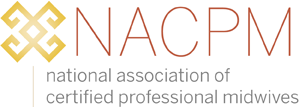Genetic Testing
1.5 MEAC CEUs Available
Thursday, June 1, 2017
Please sign up here if you wish to receive Continuing Education Credits for webinars. Please contact us if you have questions or suggestions for future webinars.
This webinar qualifies for the NARM Category 3 Bridge Certificate
This webinar is designed for midwives providing care in the community context where access to genetics counselors and antenatal screening may be less streamlined and integrated. During this webinar, we will review current prenatal genetic testing options, indications for referring to genetic counseling, and approaches for accessing information about cost and insurance coverage of testing and counseling. We will also describe the strengths and limitations of screening tests, such as cell-free DNA testing (Harmony, Materniti21, etc.) and carrier screening, and of diagnostic testing, such as CVS and amniocentesis. We will discuss frequently asked questions about the false positive rates of screening tests, the chance of miscarriage with diagnostic testing, and the clinical utility of genetic information for pregnancy planning and improving birth outcomes. We will conclude the webinar with an overview of the findings from a recent study by Gabriel, Cheyney (the two presenters) and Burcher on the utilization of genetic counseling and antenatal testing among midwives in Vermont with a focus on the clinical and socio-political implications of this work. Twenty minutes will be reserved for questions and answers at the end of the webinar.
Melissa Cheyney, Ph.d, CPM, LDM, is a medical anthropologist and licensed midwife. She began her studies in anthropology as a Master’s student in bioarchaeology with a focus on health and disease patterns in classical antiquity. As Melissa entered her doctoral program, her focus began to shift to the health of living populations. While working on her Ph.D. at the University of Oregon, Melissa decided to pursue a clinical degree in midwifery while completing the requirements for her doctorate in medical anthropology. Her research focuses on a subfield of medical anthropology called evolutionary medicine. It examines contemporary health conditions, including maternal and infant health patterns, in cross-cultural and evolutionary perspective. Melissa continues to attend home deliveries while teaching Biocultural Anthropology at Oregon State University.
Jazmine Gabriel, PhD, MS, trained in genetic counseling at Boston University, and will work as a genetic counselor specializing in cancer genetics. She earned a PhD in philosophy from the University of Oregon, and her scholarship focuses on the intersections of genetics and ethics. Her current research interests include home birth midwives’ perceptions of and experiences with genetic testing and genetic counselors, genetic counselors’ perspectives on interpreting direct-to-consumer genetic testing, and ethical issues in prenatal genetic testing.
View Presentation slides here


